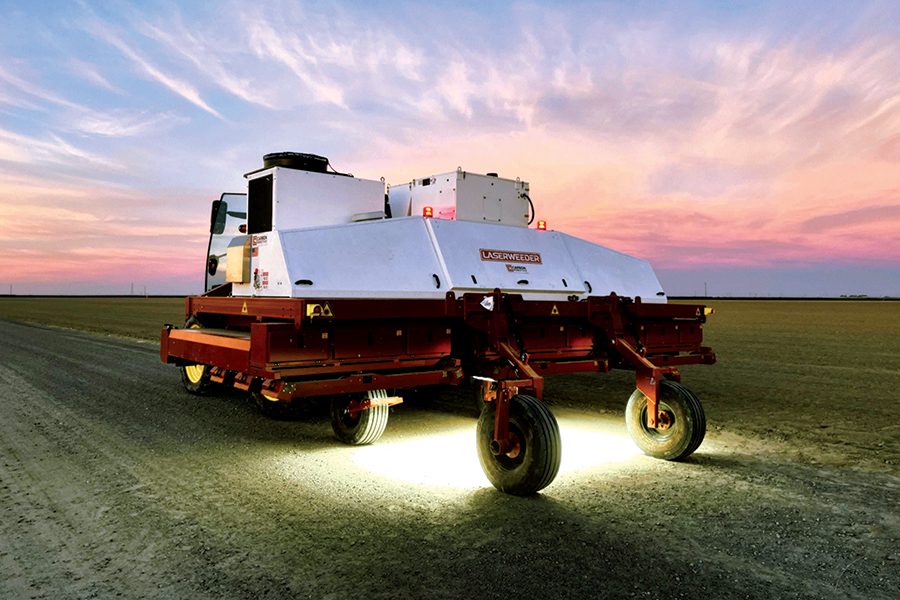
Home » A company with a facility in Richland is on front lines
A company with a facility in Richland is on front lines

June 14, 2023
Bruce Swindler usually doesn’t like to be the first in line to buy a new vehicle.
He’d rather wait a bit and see how it handles for others before taking the plunge.
But Swindler opted to be at the front of the pack when it comes to using new technology to help with the labor-intensive task of weeding on his Warden farm. He and his partners in Skone & Connors, an onion and potato operation, went in on a LaserWeeder with another nearby grower.
And, so far, he’s happy with the decision.
“The key component is you need to get out there when the weeds are really small. The sooner you get it into your field (the better),” he said. “It looks like you’re not killing anything, but you can see smoke and a flash of light, and you see a burn mark on the ground. The weed it hits is toast, it’s gone.”
The LaserWeeder was developed by the Seattle-based Carbon Robotics, and it uses artificial intelligence and laser technology to help farmers with weeding. It attaches to a tractor, and company officials say it can pinpoint and zap weeds within a millimeter of the crop without doing damage.
Eight units currently are in use in Eastern Washington, and “we’re probably going to triple that by this time next year,” said Paul Mikesell, Carbon Robotics founder and chief executive officer.
Along with supplying the LaserWeeder to farmers in the region, the company also has another local tie: it recently opened a facility on Reata Road in Richland where it can refurbish lasers on the implements when needed. Three people work there now, and more are being hired, Mikesell said.
Carbon Robotics started in 2018 with a focus on bringing technology to farms to help improve efficiency and operational consistency, save farmers money and help with labor issues.
Manual weeding is a lot of work and takes a lot of time for hand crews, and “when you find people (to work on farms), the last thing you want to do is put them out in the field pulling weeds. You want to put folks to work doing more leveraged activities,” Mikesell said.
The LaserWeeder also means growers don’t have to rely on spraying for weed control, and they can plant more densely because of the implement’s precision in eliminating weeds, he said.
So far, it’s largely been used on vegetable crops such as carrots, onions, broccoli, cauliflower, lettuce, spinach and radishes. “Generally, where the quality and nutrients matter a lot, it shines,” Mikesell said.
He said feedback from farmers has been positive, with “a lot of repeat orders.”
“The thing that I’m excited about is that our machines are out there helping farmers. And now we’ve discovered we can also bring some of the high-tech production jobs to the area (with the Richland facility), and we’re really excited about that,” Mikesell said.
For Swindler, the Warden farmer, the LaserWeeder has been a hit so far.
He and his partners used it successfully on a 167-acre onion field. They usually spray herbicide and then follow up with a hand crew. But after surveying the field post-LaserWeeder, they decided they wouldn’t need to spray, and they expected the hand crew to have less work to do, he said.
As with any new tool, there have been a few hiccups, but they were addressed quickly, he said.
“I think there’s definitely a place for this machine. They’ve got a lot of support, a lot of smart people on this thing. You can contact them any time of day and they can make changes,” he said.
Go to: CarbonRobotics.com.
Agriculture + Viticulture
KEYWORDS june 2023





